Stomach cancer, also known as gastric cancer, is relatively rare in the United States, constituting about 1.3% of new cancer cases. But that percentage doesn’t tell the full story. Gastric cancer could be considered the “poster child” of cancer disparities, said Shria Kumar.
“At every level of the cancer continuum, we know that minorities — and specific minorities — shoulder the burden,” – said Dr. Shira Kumar, a member of the Cancer Control Program at Sylvester Comprehensive Cancer Center, part of the University of Miami Miller School of Medicine.
The incidence of gastric cancer is higher than average in Hispanics, Blacks, Asian Americans, some native populations and immigrants from certain countries, Dr. Kumar said. People in these groups are not only more likely to develop gastric cancer but also to die of it.
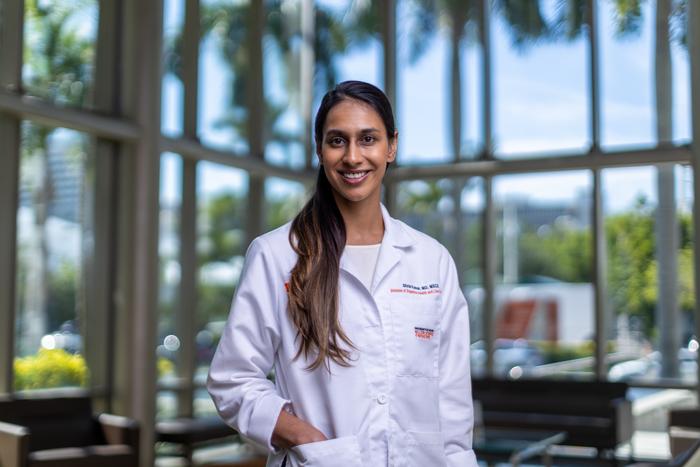
Researchers at Sylvester are working to understand the root causes of these disparities and use that information to better prevent and treat gastric cancer in disproportionately affected populations.
Wael El-Rifai, associate director of basic science and associate vice chair of surgery at Sylvester, noted the benefits of Sylvester’s multidisciplinary approach to gastric cancer.
“We are a group. Everyone’s doing something different, but we are all working together.” – he said.
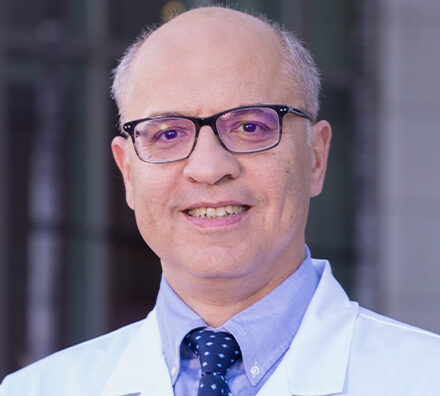
The causes of gastric cancer disparities are multifaceted, said Cindy Medina Pabon, assistant lead of gastrointestinal cancer clinical research at Sylvester and an assistant professor in the Division of Medical Oncology at the Miller School.
Socioeconomic disadvantages can make it more difficult for patients to access medical care, which can lead to diagnoses at later stages that are harder to treat, Dr. Pabon said. Culture can also have an effect. For example, Dr. Pabon is Hispanic and grew up hearing people equate stomach pain to nervousness.
“Because that is such a strong cultural custom, sometimes we forget that there may be a medical underlying issue that’s driving these physical feelings. So, because of varying cultural beliefs and health behaviors, people from certain communities may not seek medical attention until they’re feeling much sicker.”– she said.
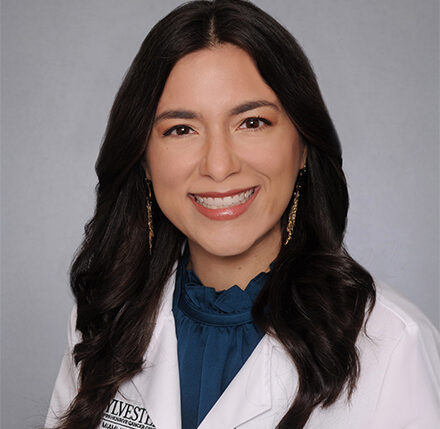
Systemic problems are another factor. Dr. Kumar led a 2023 study that found that some cancers with high mortality rates in minority populations, including gastric cancer, received proportionally less federal research funding.
A Key Bacterial Factor
A top risk factor for gastric cancer is infection with a common bacteria, Helicobacter pylori — and infection rates vary among populations.
Dr. Kumar’s work seeks to create a clearer picture of who is at higher risk. For example, she has found a higher rate of H. pylori infection in patients born in Latin American and Caribbean countries. But in regions within those countries, rates vary.
South Florida, with its large immigrant population, is an ideal place to identify additional variables.
Dr. Kumar and her colleagues are studying patients across the region to investigate which strains of H. pylori are more likely to cause cancer. This can help clinicians better understand an individual patient’s risk based on what strain is present, along with demographics.
She’s also part of a community-based H. Pylori testing and treatment effort designed to help researchers create targeted screening programs.
With Sylvester’s Game Changer vehicles and other partners, the researchers conduct breath tests for H. pylori at locations like libraries and grocery stores. People who test positive immediately receive medication, and the team re-tests them four weeks later.
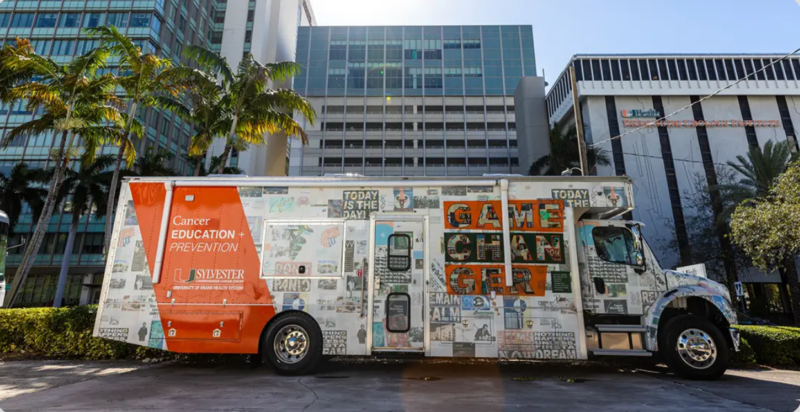
By going outside the typical clinical setting, the researchers can reach people at potentially higher risk because of disparities.
“If people are underinsured, uninsured or just not able to logistically make it to the clinician that they need, we’re able to go to them,” – Dr. Shria Kumar said.
Genetic Factors for Gastric Cancer
Gastric cancer is typically diagnosed in older patients, but there’s been an alarming trend in younger-onset gastric cancers that disproportionately affects Hispanic people, Dr. El-Rifai said.
Dr. Pabon said younger patients also are more frequently diagnosed with diffuse gastric cancer, which generally has a worse prognosis. Studies show that diffuse gastric cancer is more prevalent in Hispanic and Black populations, even after accounting for social factors, supporting the notion that a potential genetic component is causing these populations to be disproportionately affected.
The researchers commented on the critical need to investigate how genetic differences may play a role in these disparities.
The data in this area is another point of disparity. The largest nationwide genetic study of gastric cancers, by the Cancer Genome Atlas, included less than 1% Hispanic patients, Dr. Pabon said.
She is now reviewing genetic information from past Sylvester patients, including a high proportion of Hispanics, to identify key drivers in tumor development. Alongside looking for patterns of genetic risk factors, she’s studying whether cancers in Hispanic patients have differential biomarker expression. The current landscape of gastric cancer treatment is guided by biomarkers.
“If that ends up giving us more insight into how these biomarkers are expressed, then maybe we could develop more specific, targeted treatments for the different populations,” – Dr. Pabon said.
Dr. El-Rifai is studying how H. pylori infection leads to the development of gastric cancer. His lab is focusing on discovering druggable abnormal molecular changes in cancer cells that can be targeted to eradicate gastric tumors. They’ve recently found that some genes are activated in cancer cells that promote or mediate immune suppression.
“If we are able to inhibit the specific genes, then you restore the activity of the immune system,” – which could work in synergy with cancer-treatment drugs, he said.
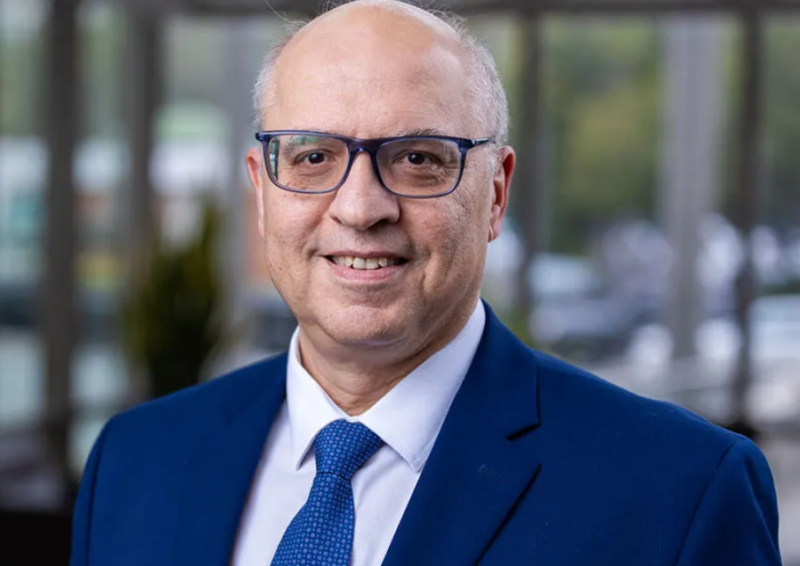
It’s key to remember, however, that H. pylori infection is preventable.
“By speaking to the community, and by reaching out to the community, we can make sure they understand that this is a risk factor that can be avoided,” – Dr. El-Rifai said.
Other posts featuring Sylvester Comprehensive Cancer Center.


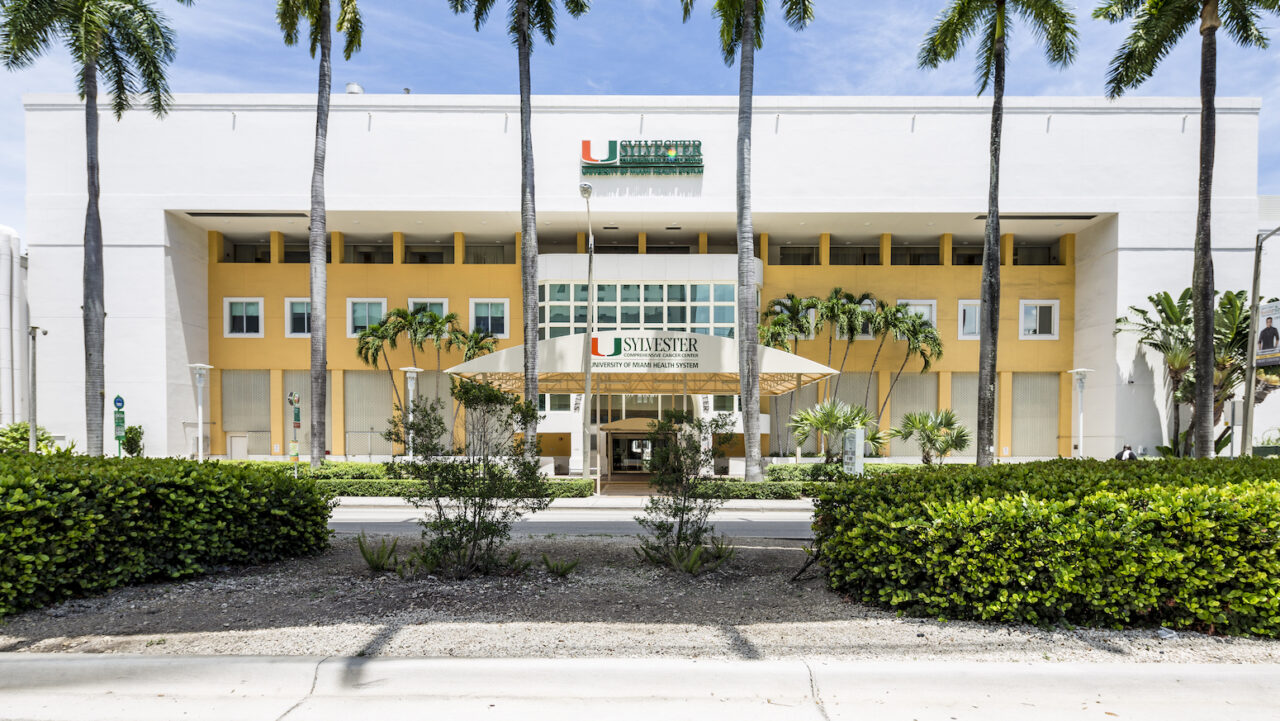
Social and Systemic Factors